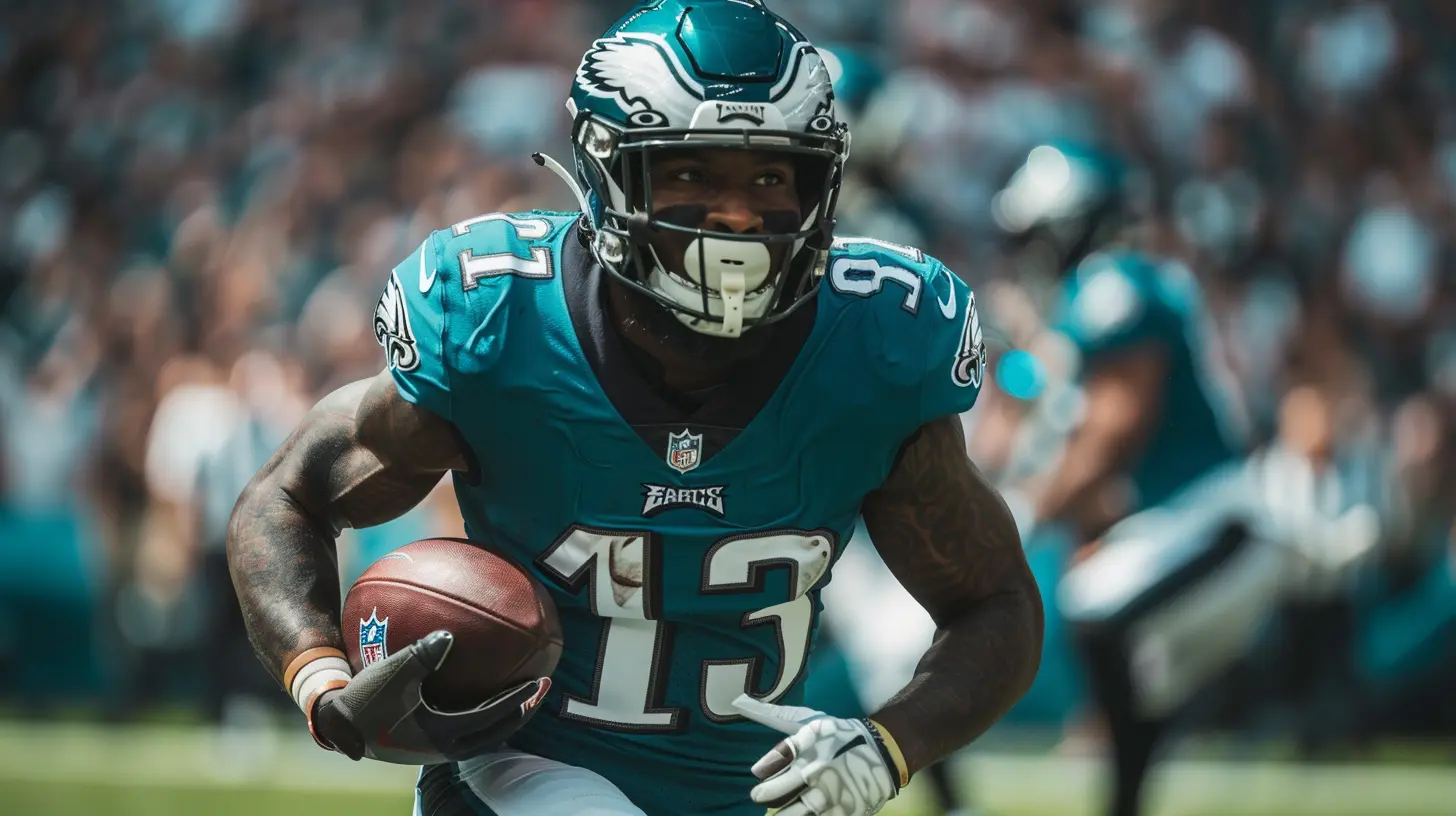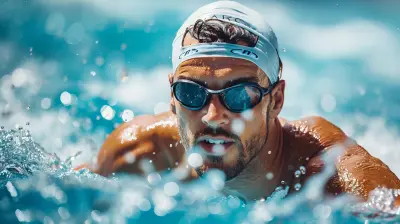How Athletes are Using Sponsorships to Build Personal Brands
7 June 2025
In today’s world, athletes are no longer just athletes. They’re entertainers, influencers, and, more than ever, brands. Yep, you read that right—brands. And what’s helping them build these personal brands? Sponsorships.
It’s no longer just about slapping a logo on a jersey or holding up a can of energy drink after a game. Modern athletes are leveraging sponsorships in ways that go far beyond traditional advertising. They’re using these partnerships to shape their image, connect with fans, and ultimately create their own unique identities in the world of sports and beyond.
But how exactly are athletes using sponsorships to build personal brands? Let’s dive in, shall we?

The Evolution of Athlete Sponsorships
Back in the day, sponsorship deals were pretty simple. A brand would pay an athlete a boatload of cash to wear their gear, show off their products, or mention them in an interview. It was a straightforward transaction: athletes got paid, and brands got exposure.Fast forward to today, and things are a little more... dynamic. Athletes are no longer content just showing up in commercials or posing with products. They want to be involved. They want to be seen as partners, not just spokespeople. And that’s where the magic happens.
Sponsorships now go beyond just selling a product. They’re about storytelling. Athletes use these deals to share their personal journeys, values, and beliefs. They’re building personal brands that are authentic, relatable, and, most importantly, memorable.

The Power of Social Media in Shaping Personal Brands
Let’s be real—social media is a game-changer. It’s no longer just a platform for posting selfies and vacation pics. For athletes, it’s the most powerful tool they have to engage with fans and express their personalities.Take a look at someone like LeBron James. Sure, he has massive endorsement deals with brands like Nike and Beats by Dre, but his personal brand is so much more than just a swoosh or a pair of headphones. Through his social media channels, LeBron shares his life off the court—his family, his charity work, his opinions on social justice issues. He’s not just a basketball player; he’s a thought leader, a businessman, and a role model.
By carefully curating their social media presence, athletes can shape how the world sees them. They can align themselves with brands that share their values, and in turn, those brands help amplify their message. It’s a win-win.

Authenticity: The Key to Successful Sponsorships
Here’s the thing—fans can smell inauthenticity from a mile away. If an athlete is promoting a product just for the paycheck, it’s pretty obvious. And guess what? It doesn’t work.Successful sponsorships are built on authenticity. Athletes are choosing to partner with brands that align with their personal values, lifestyles, and interests. When done right, these partnerships feel natural.
For example, Serena Williams is not only one of the greatest tennis players of all time—she’s also a fashion icon and a champion for women’s empowerment. So it makes perfect sense that she has partnerships with brands like Nike, which emphasizes athletic excellence, and Bumble, a dating app that focuses on empowering women. These aren’t random deals; they’re extensions of who she is.
Authenticity in sponsorships helps athletes build trust with their audience, which is crucial for developing a strong personal brand. Fans want to support athletes who are real, who stand for something, and who are genuine in their endorsements.

Building Long-Term Partnerships
Gone are the days of one-off endorsement deals. Athletes are now looking for long-term partnerships with brands that can grow alongside their careers. These long-term deals allow athletes to become synonymous with a brand, turning them into ambassadors rather than temporary spokespeople.Take Roger Federer’s partnership with Rolex, for instance. Federer and Rolex have been working together for over a decade, and the pairing just makes sense. Both Federer and Rolex are symbols of timeless elegance, excellence, and class. This long-term relationship has strengthened Federer’s personal brand while giving Rolex a global ambassador who embodies their values.
Through these long-term partnerships, athletes can create a consistent image and message that resonates with their audience. It’s about building something that lasts, rather than jumping from one endorsement deal to the next.
Diversifying Revenue Streams
Sponsorships are more than just a way for athletes to make extra cash—they’re a vital part of diversifying their income. Let’s face it, athletic careers don’t last forever. One injury or a few bad seasons can drastically change an athlete’s career trajectory. That’s why smart athletes are using sponsorships to create multiple streams of income that can support them long after they’ve retired from their sport.Take someone like Cristiano Ronaldo, for example. Not only is he one of the highest-paid athletes in the world, but he also has a slew of endorsement deals with brands like Nike, CR7 (his own clothing line), and Herbalife. These sponsorships have helped Ronaldo build a brand that goes beyond soccer. Even after he hangs up his cleats, his personal brand will continue to thrive.
By diversifying their revenue streams through sponsorships, athletes can create financial stability and future-proof their careers.
Athlete-Owned Businesses and Collaborations
Some athletes are taking it a step further by not just partnering with brands but becoming business owners themselves. Instead of just endorsing a product, they’re creating their own. This allows them to have even more control over their personal brand and the message they’re putting out into the world.A perfect example of this is Stephen Curry. In 2020, Curry launched “SC30 Inc.,” a company designed to manage his own endorsement deals, brand partnerships, and philanthropic efforts. By taking ownership of his brand, Curry has more say in the types of deals he makes and how they align with his personal values.
Athletes like Curry are showing that they’re not just athletes—they’re business moguls, too. And that’s a powerful way to build a personal brand that goes beyond sports.
Tapping Into Social Causes and Activism
In recent years, we’ve seen a rise in athletes using their platforms to advocate for social causes. Whether it’s speaking out against racial injustice, supporting environmental initiatives, or promoting mental health awareness, athletes are using their voices to make a difference. And sponsors are taking notice.Brands are increasingly partnering with athletes who are vocal about social issues. Why? Because today’s consumers care about more than just the product—they care about the values behind the product. By aligning with athletes who are active in social causes, brands can tap into this growing demand for corporate social responsibility.
Take Colin Kaepernick, for example. His partnership with Nike was more than just about selling sneakers—it was about making a statement. Kaepernick’s personal brand is built around his activism, and Nike saw an opportunity to align themselves with that message. The result? A powerful campaign that resonated with millions of people around the world.
By leveraging sponsorships to support social causes, athletes can build personal brands that go beyond sports and leave a lasting impact on society.
The Future of Athlete Sponsorships
So, what does the future hold for athlete sponsorships? It’s clear that the traditional model of endorsement deals is evolving. Athletes are no longer just walking billboards—they’re entrepreneurs, activists, and influencers. Sponsorships are becoming more about collaboration and storytelling than simple product placement.As athletes continue to take control of their personal brands, we’re likely to see even more creative and innovative partnerships. Whether it’s through launching their own businesses, advocating for social change, or creating long-term brand partnerships, athletes are using sponsorships to build legacies that will last far beyond their playing careers.
And as fans, we’re here for it. Because at the end of the day, we’re not just cheering for the athlete on the field—we’re cheering for the person behind the brand.
all images in this post were generated using AI tools
Category:
Sponsorship DealsAuthor:

Uziel Franco
Discussion
rate this article
2 comments
Sera McVicar
Great read! It’s fascinating to see how athletes are leveraging sponsorships to create their own brands. It’s not just about the game anymore; personal branding is becoming an essential part of their journeys. Exciting times ahead!
June 14, 2025 at 3:22 AM

Uziel Franco
Thank you! I’m glad you enjoyed it and see the importance of personal branding in sports. Exciting times indeed!
Soleil McElroy
Who knew scoring a sponsorship could be as important as scoring points? Athletes are now juggling endorsements like they're on a tightrope—one misstep, and it’s bye-bye brand! Let’s hope they stick the landing, or at least land a good snack deal!
June 11, 2025 at 10:26 AM

Uziel Franco
Absolutely! Today's athletes must balance performance and branding skillfully—success in sponsorships can be just as crucial as winning games. Let's see who can nail that landing!

![The Power and Precision of [Player Name]: A Breakdown of Their Game](/pictures/blog/small/the-power-and-precision-of-player-name-a-breakdown-of-their-game_4.webp)